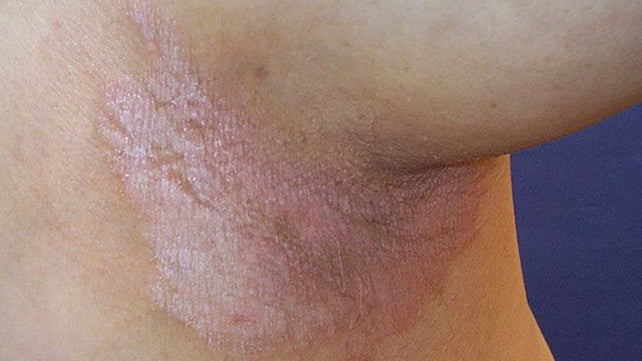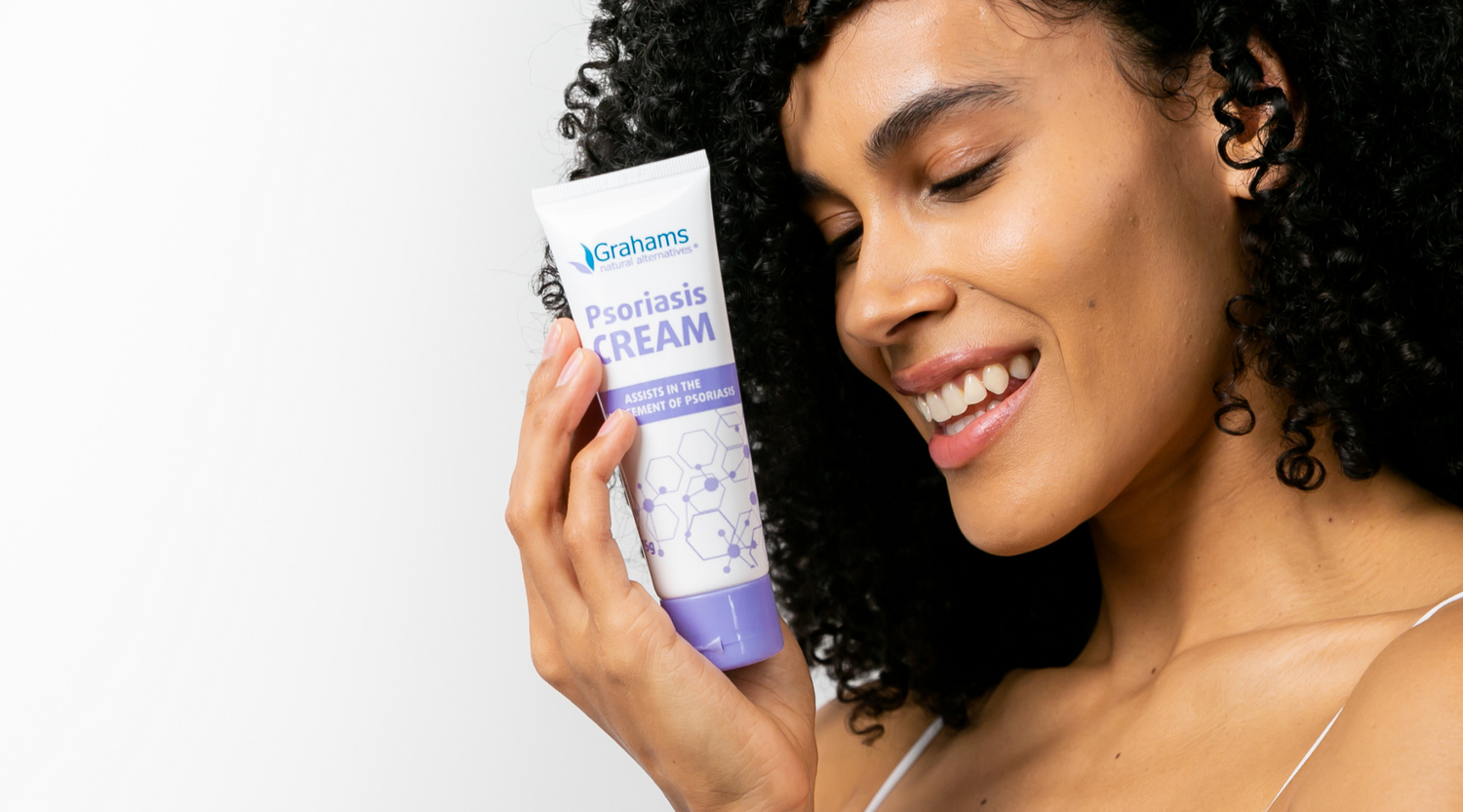Did you know between 3 to 7 percent of people living with psoriasis develop inverse psoriasis?
What is Inverse Psoriasis?
Inverse psoriasis is a chronic skin condition otherwise known as flexural psoriasis and intertriginous psoriasis. Unlike the common psoriasis which typically appears on the elbows and knees, inverse psoriasis appears as smaller, pink, sometimes itchy patches that appear in skin folds and areas where two skin surfaces rub together. This includes the armpit, knee, groin, genitals and under the breasts.
What Causes Inverse Psoriasis?
The exact cause of inverse psoriasis remains unknown. It’s believed genes and other immune system factors can contribute to some people having the skin condition; however further studies are required. There are several factors that can trigger the autoimmune response. These common triggers include:
- Severe stress
- Injuries such as a scratch, injections, or sunburn
- Certain medications, including lithium and antimalarial tablets
- Infections that affect the immune system, such as strep infections
Other possible triggers include diet, allergies, and even the weather.
What Are The Risk Factors of Inverse Psoriasis?
Inverse psoriasis is more common in people who are overweight or have deep skin folds. Also, many people with inverse psoriasis also have other forms of psoriasis, such as plaque psoriasis.
Other factors that contribute to inverse psoriasis include:
- Having diabetes
- Excessive sweating
- Weak immune system
- Living in a hot, humid climate
- Participating in activities that involves skin-on-skin friction
Complications of Inverse Psoriasis
In some cases, inverse psoriasis can lead to an infection.
This is because:
- The lesions tend to occur in areas of the body where skin is thin and sensitive
- Medications that treat psoriasis can have a side effect of skin thinning, increasing the risk of infection
- Skin folds tend to be moist and warm, making it a perfect breeding ground for yeast or other bacterial infections
Treating Inverse Psoriasis Naturally
Prescribed medications, such as corticosteroids, may be prescribed by doctors to control psoriasis. These are steroid-based medications you rub on your skin, including your scalp to ease inflammation. These topical treatments can be helpful, but shouldn’t be used for extended periods of time. They can make your skin thinner, could cause stomach ulcers, bone thinning, and premature cataracts among other medical issues, and may stop working as well.
There are natural options you can try to treat psoriasis. These have all been scientifically proven to be effective in managing psoriasis:
Healthy Diet
Obesity and poor diet can worsen inverse psoriasis, so it’s important to adopt a healthy lifestyle. A study in the British Journal of Dermatology found that losing weight could help improve psoriasis. Losing weight can also make psoriasis treatments more effective.
Simple ways to be healthier include:
- Limiting alcohol - studies have shown men who drink heavily don’t respond to psoriasis treatments as well. And some research suggests people who have psoriasis have less flare ups when they stop drinking heavily. If your condition is especially severe or you take certain medications, like methotrexate and acitretin, your doctor may tell you to stay away from alcohol completely.
- Incorporating whole foods into your diet, such as fruits and vegetables
- Eating lean meats and other healthy proteins
- Reducing your intake of sugar and other processed foods
- Including anti-inflammatory foods to your diet that are rich in Omega 3,6 & 9 - An easy way to include these into your diet is our Mega Oil. The Grahams Natural Mega Oil is amazing for people lacking essential oils and fatty acids, and is especially designed for people with sensitive skin. This oil can be consumed by adding to your favourite foods, but note that it cannot be heated to cook with.

In addition to improving your diet, it’s also important to exercise regularly to lose or maintain a healthy weight.
Herbal Therapies
Some people believe certain herbal therapies can treat psoriasis. There’s some evidence that aloe vera, neem, and sweet whey extracts may help psoriasis. Other herbal therapies that may work include apple cider vinegar and tea tree oil to treat scalp psoriasis.
Methods To Reduce Stress
As said earlier, stress is a recognized trigger for psoriasis. Some ways you can try and reduce your stress levels is by incorporating these practices into your daily life:
- Practice aromatherapy - aromatherapy is a great stress relief tool as it has few (if any) side effects, can be used passively (e.g. you can fill the room with scent while you go about other activities), and can be easily combined with other stress relieving methods. It’s great for busy people who need something quick. We suggest using oils, such as chamomile or lavender, in an oil diffuser or applied topically to reduce stress.
- Practice meditation on a regular basis
- Practice mindfulness to reduce stress and increase your tolerance for physical and emotional pain caused by psoriasis.
Last but not least… Grahams Natural’s Psoriasis Cream.

Our psoriasis cream is a topical emollient therapy, to be used in conjunction with professional medical management of psoriasis. It works to hydrate the skin and relieve the common symptoms of psoriasis.
Benefits of the Psoriasis Cream include:
- Antibacterial: Active Manuka Honey helps to control bacteria on the skin, naturally
- Hydration: Moisturising ingredients to hydrate the skin, facilitating the removal of dead skin and epidermal rehydration
- Clinically tested ingredients
For best results, we recommend using in conjunction with our Body & Bath Oil and Cleansing Bar.





